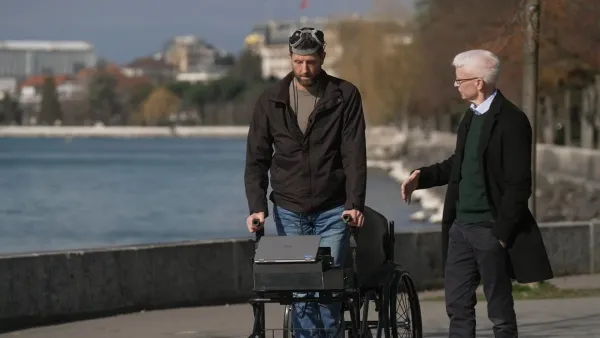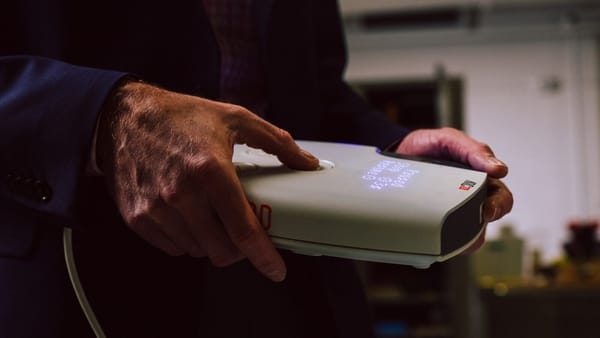World's First Regenerative Cell Therapy for Spinal Cord Injury Enters Human Trials

SUZHOU, CHINA & WASHINGTON D.C. – May 26, 2025 – A truly revolutionary stride in neuroregenerative medicine is officially underway, promising a profound paradigm shift in the treatment of spinal cord injuries (SCI). XellSmart Biopharmaceutical today announced a landmark moment: the official dual approval by both the U.S. Food and Drug Administration (FDA) and China's National Medical Products Administration (NMPA) for a global Phase I clinical trial of its allogeneic iPSC-derived regenerative cell therapy. This monumental decision marks the world's first registrational clinical trial for an "off-the-shelf" therapy specifically designed not just to manage the symptoms of SCI, but to fundamentally reverse damage by actively regrowing injured cells and restoring function.
For decades, the standard of care for spinal cord injuries has focused primarily on stabilization, rehabilitation, and symptom management. While these approaches have significantly improved the quality of life for many, they have not offered a true cure or restoration of lost neurological function. The devastating consequences of SCI—ranging from complete paralysis to severe sensory and motor deficits—stem from the irreversible damage to neural pathways, the formation of scar tissue that inhibits nerve regeneration, and the loss of essential supporting cells. XellSmart's innovative therapy aims to overcome these biological barriers by providing the very building blocks for repair.
At the heart of this groundbreaking therapy are allogeneic (donor-derived) induced pluripotent stem cells (iPSCs). Unlike embryonic stem cells, iPSCs are generated by "reprogramming" adult cells (such as skin cells) back to an embryonic-like, undifferentiated state. This process bestows them with the extraordinary ability to differentiate into virtually any cell type in the body. For SCI, this means they can be directed to mature into crucial neural cells like neurons (the primary signaling cells), oligodendrocytes (which form the protective myelin sheath around nerves), and astrocytes (which support neural function). By introducing these versatile, immature stem cells, XellSmart aims to replace lost cells, bridge gaps in severed neural circuits, and create a more conducive environment for existing nerves to regenerate and reconnect.
The "allogeneic" aspect of this therapy is a critical advancement. Traditional stem cell approaches often require harvesting cells from the patient themselves (autologous), which can be complex, time-consuming, and limited by the patient's own cell health. An "off-the-shelf" allogeneic therapy, however, uses cells from healthy donors that can be manufactured in large quantities, quality-controlled, and readily available for administration to any compatible patient. This "one-size-fits-all" approach not only simplifies logistics and reduces costs but also accelerates patient access and ensures consistent product quality, making it potentially scalable and widely accessible to millions globally.
This groundbreaking step into human trials follows an intensive four years of extensive preclinical research. XellSmart's scientists meticulously conducted numerous in vitro (laboratory dish) and in vivo (animal model) studies, demonstrating the therapy's safety profile and its remarkable potential. Preclinical data, published in leading scientific journals, showed significant functional improvements in animal models of SCI, including restored motor function and improved sensory perception, validating the therapeutic strategy. These robust findings provided the critical evidence required by regulatory bodies like the FDA and NMPA to greenlight human trials, underscoring the therapy's promise.
The current global Phase I clinical trial will initially focus on evaluating the safety and optimal dosage of the iPSC-derived regenerative cells in human patients. Participants will receive the cells directly at the site of their spinal cord injury, with researchers closely monitoring for any adverse effects and preliminary signs of efficacy. The dual approval by both the U.S. and Chinese regulatory agencies highlights the global collaborative effort and the shared urgency in addressing this debilitating condition, ensuring that the trial adheres to the highest international scientific and ethical standards.
A spokesperson for XellSmart articulated the profound significance of this moment, stating, "For too long, the narrative around spinal cord injury has been one of management and adaptation. Today, we are shifting that narrative. We're moving beyond care and into cure. For the first time, we're offering real, tangible hope to millions living with spinal cord injury by aiming to regenerate the very tissues that are damaged. This represents a significant leap towards truly regenerative medicine for spinal cord injuries, potentially redefining life for countless individuals."
While this Phase I trial is a crucial initial step, successful outcomes could pave the way for larger Phase II and III trials over the next few years, further assessing efficacy and determining long-term benefits. Experts anticipate that if these trials continue to show positive results, widespread availability of such a transformative therapy could be within five to seven years. The potential societal impact is immense: not only could it drastically improve the quality of life and independence for SCI patients, but it could also alleviate the immense economic burden on healthcare systems globally. This therapy doesn't just offer the promise of functional recovery; it offers the profound hope of a new beginning.



